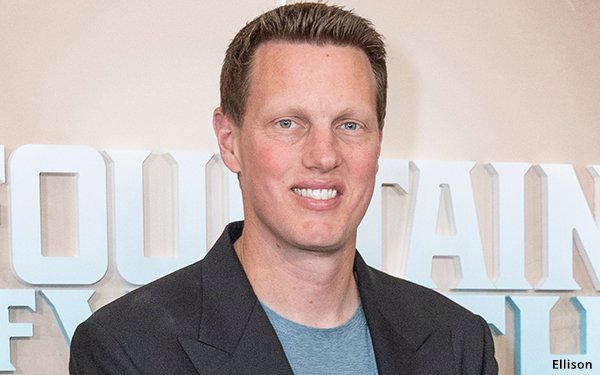
Skydance’s prospective takeover of
Warner Bros. Discovery represents the arrival of an entirely new kind of player in the TV business.
The fact that this proposal comes just one month after Skydance
closed on its takeover of Paramount Global signifies that this new, deep-pocketed invader from the tech sector means business.
He -- meaning David Ellison,
CEO of Skydance (now Paramount, a Skydance Corporation) -- is a man in a hurry.
Ellison, 42, was raised in a tech-sector household by a father, Oracle
cofounder Larry Ellison, who is said to be the richest person in the world with an estimated fortune of $393 billion -- $102 billion of which was earned just last week when the news broke of the
proposed takeover of WBD.
advertisement
advertisement
Tech-sector moguls are all among the richest people on the planet. In their world, the present and future matter a lot more
than the past.
The word “legacy” is not in their vocabularies. They are not sentimental. They
are not into historic preservation.
They like to come in and break things. Remember when we used to call
them “disruptors”? They still live by that ethos.
If this merger of Paramount and WBD takes place -- and that
remains an open question -- the fate of just about everything will be on the table.
Legacy broadcast networks supported by local TV stations covering the country?
How quaint!
Cable channels delivered via millions of miles of physical wires buried in the ground or running
above lawns from telegraph poles to the roofs of houses? Really? “Telegraph” poles?
News
reporting and delivery based on a model of journalistic rectitude that dates back almost a hundred years? You’re kidding, right?
A merged Paramount and
Warner Bros. Discovery would join and consolidate an array of diverse properties to create a TV and media company of unprecedented size.
The new entity would
represent the full breadth of what we call television today -- basic- and pay-cable channels, owned-and-operated TV stations, a broadcast network, production studios, a syndication arm, digital
properties, huge content libraries, real estate and, of course, the streaming services HBO Max and Paramount+.
What will Ellison and Skydance do? Prepared
statements from Ellison in August when the Skydance Paramount deal closed are worth revisiting.
Of the future of basic cable and other legacy media at
Skydance, he said: “Our challenge is to reinvent our portfolio of brands for a non-linear world.”
In other words, linear TV is passé.
Skydance will sift through all the brand names to see whether any of them can be remade to thrive digitally.
Experiments will be undertaken. Some brands will make it and some won't. It will all be done with little or no emotion.
“We plan to invest appropriately based on the future business opportunity, thereby maximizing cash flow so we can reinvest in our growth businesses,” Ellison
said.
Translation: Whichever of our properties can keep making money and operate in the black, we will use
them to fund the growth businesses that represent the future.
Eventually, the growth businesses will stand
on their own, at which time the old businesses will have outlived their usefulness, and out they will go.
The Ellison effect is already being felt at CBS
News. To close the Paramount deal, Paramount Global caved in to pressure from Trump and agreed to let him win his lawsuit over the way “60 Minutes” edited a Kamala Harris interview. In
return, Trump’s FCC approved the deal.
When the merger closed, Ellison promised that the new company would hire an ombudsman to scrutinize CBS News
content.
The ombudsman Skydance hired is Kenneth Weinstein, described as a Trump associate who has acted as an adviser to his administration.
Ellison is a man of the 21st century. Traditional news is not something he has likely spent much time thinking about. In fact, the word “traditional” is
probably as distasteful to him as “legacy.”
To him, the phrase “TV company” might feel just as outmoded.
“Tech company” is more like it.